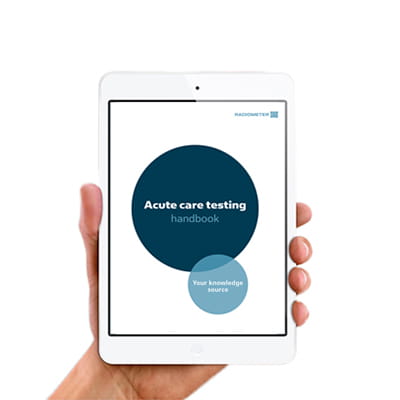Printed from acutecaretesting.org
January 2006
A record-breaking serum potassium concentration
Summarized from Tran H. Extreme hyperkalemia. South Med J 2005; 98: 729-32
In health, plasma potassium is maintained within the range of 3.5-5.2 mmol/L. Marked increase in potassium level (> 6.5 mmol/L) is considered a clinical emergency because it is associated with high risk of cardiac arrhythmia and, ultimately, cardiac arrest. Collective clinical experience suggests that in the absence of rapid potassium-lowering therapy, plasma potassium > 8.5 mmol/L will inevitably lead to lethal cardiac arrest.
Now a recently published case study describes the remarkable survival of a patient despite a serum potassium level of 14.0 mmol/L. According to the authors of this report, this is the highest recorded potassium level in a patient who has survived. The patient, a previously healthy 52-year-old man, was admitted to hospital with acute cholecystitis.
Two days after admission he suffered severe myocardial infarction causing cardiac arrest. During cardiopulmonary resuscitation (CPR), which included six episodes of external defibrillation to a maximum of 350 joules, his potassium increased from 4.3 mmol/L before arrest to a maximum of 14.0 mmol/L 15 minutes after arrest.
After 30 minutes of CPR, normal heart rhythm was restored and the patient made a good recovery. Administration of potassium-lowering therapy (calcium gluconate and insulin) was effective: at 24 hours post arrest, his serum potassium was normal (3.5 mmol/L).
The cause of extreme hyperkalemia was assumed to be massive efflux of potassium from cells damaged during infarction and subsequent episodes of external defibrillation.
May contain information that is not supported by performance and intended use claims of Radiometer's products. See also Legal info.
Acute care testing handbook
Get the acute care testing handbook
Your practical guide to critical parameters in acute care testing.
Download nowScientific webinars
Check out the list of webinars
Radiometer and acutecaretesting.org present free educational webinars on topics surrounding acute care testing presented by international experts.
Go to webinars







